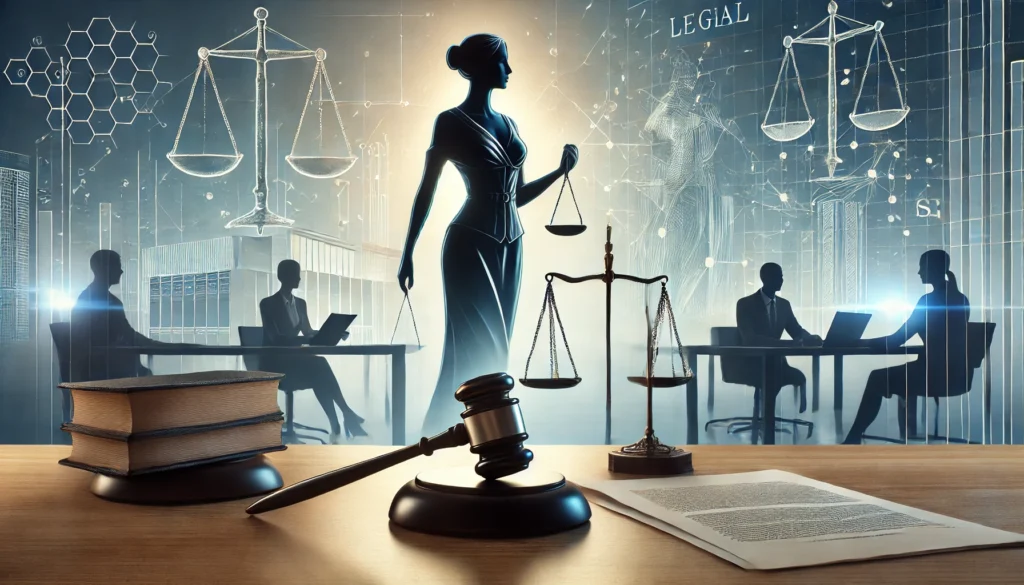Published on: 16th November 2025
Authored by: Vedha Kulkarni
Marathwada Mitra Mandal's Shankarrao Chavan Law College
Court: Supreme Court of India
Bench: N. Santosh Hegde, S. N. Variava, B. P. Singh, H. K. Sema, S. B. Sinha
Date of Judgement: 2 February 2005
Relevant Provisions/Statutes: Article 12, 14, 19(1)(g), 32, 226 of the Indian Constitution
Brief Facts
Operating as a private entity registered under the Tamil Nadu Societies Registration Act, 1975, the Board of Control for Cricket in India (BCCI) holds the primary authority for administering cricket nationwide, including team selections, event planning, player agreements, and overall match management.
The controversy originated when the BCCI invited bids for exclusive cricket broadcasting rights over a four year period. After evaluating proposals from Zee Telefilms Ltd. and ESPN, the BCCI granted the contract to Zee for $260,756,756.76 (INR 12.06 billion). Zee consequently placed a security deposit of $20 million (INR 92.50 crores) with the State Bank of Travancore.
Following ESPN’s challenge in the Bombay High Court, the BCCI revoked Zee’s contract and refunded the deposit. Zee subsequently petitioned the Supreme Court, asserting two main points:
∙ The BCCI’s decision violated Article 14 of the Constitution, which guarantees the Right to Equality.
∙ Given the public nature of its activities, the BCCI ought to be categorized as a “State” authority under Article 12, thus making it accountable to constitutional review.
The pivotal question for the Supreme Court was whether the BCCI qualified as a “State” under Article 12, which would permit Zee to seek redress via Article 32. However, arguments against this classification included:
∙ The BCCI’s non-statutory status.
∙ Its operational independence, lacking government capital ownership.
∙ The absence of significant financial support from the State.
∙ Its leading role in cricket not stemming from a state-bestowed or protected monopoly.
∙ Limited or no pervasive governmental control over its functions.
These considerations, despite the BCCI’s involvement in matters of public importance, raised significant questions regarding its designation as a “State” within the constitutional framework.1
Issues
Issues raised in this case are:
- Is BCCI a state under Article 12 of the Indian Constitution?
- Is the arbitrary cancellation of the contract with Zee Telefilms by BCCI violative in nature? c. Whether or not the writ petition by the Zee Telefilms against the BCCI maintainable?
Arguments
The arguments from both the parties of the case are as follows:
Petitioners Argument:
Petitioner: Zee Telefilms Ltd.
Advocate: Harish Salve
Argument:
Mr. Harish Salve, senior counsel for the petitioners, argued that the BCCI, through its Memorandum, Articles of Association, and internal rules, exercises vast authority over Indian cricket. It selects players for the national team, invites foreign teams, organizes major tournaments, and disciplines players, umpires, and officials. These functions, he claimed, are inherently governmental, especially as sports is a State subject. Despite being an autonomous body, the Board derives its absolute authority from recognition by the Union Government, qualifying it as an “other authority” under Article 12.
He emphasized that the Board controls who represents the nation, directly impacting players’ rights under Article 19(1)(g) (freedom of profession). Key decisions such as sending teams abroad or inviting foreign teams require prior approval from the Government of India, indicating pervasive State influence. He also noted that the ICC recognizes BCCI as the official representative of India, not merely a private club. Players wear national symbols, and Board decisions have aligned with India’s foreign policy such as refusing recognition to players participating in apartheid-era South Africa. Even matches with Pakistan occur only with government clearance.
1LawBhoomi, “Zee Telefilms Ltd v Union of India (2005) 4 SCC 649” (LawBhoomi, April 5, 2025) <https://lawbhoomi.com/zee telefilms-ltd-v-union-of-india/>.
Hence, Mr. Salve concluded that BCCI functions as a public body because it:
(i) regulates the sport nationally,
(ii) enjoys a virtual monopoly,
(iii) restricts fundamental rights of players and umpires, and
(iv) organizes events that impact national representation and identity in sports.
In contrast, Mr. Soli Sorabjee, senior counsel for the fifth respondent, argued that only bodies created by statute or performing sovereign functions qualify as “State” under Article 12. He asserted that BCCI is neither State established nor under statutory control. Citing G. Bassi Reddy v. ICRISAT and Aga Khan, he maintained that while some functions may be public in nature, judicial review is limited unless the body fulfils established constitutional tests.
Additionally, the Union of India argued through Mr. Mohan Parasaran that BCCI performs public functions closely tied to governmental interests and even influences fundamental rights like free speech, placing it within the scope of Article 12.
It was also highlighted that Rule 32 of BCCI’s framework provides for various national-level committees, including selection and disciplinary bodies, showing its structured and authoritative control over cricket in India.2
Respondent’s Argument
Respondent: BCCI and Union of India
Advocate: KK Venugopal
Argument:
Mr. K.K. Venugopal, senior counsel for the respondents, argued that the BCCI is not a statutory body but is merely registered under the Societies Registration Act, 1860. It functions autonomously, without any administrative or financial control by the Union of India. He emphasized that the Board receives no government funding, its accounts are not audited by the government, and it operates independently. Although it holds a monopoly in cricket administration, this status is not government-granted but stems from its early establishment and continued dominance. There is no legal bar on the formation of other cricketing bodies.
Referring to the Pradeep Kumar Biswas case (2002), Mr. Venugopal contended that the Board does not satisfy the criteria for being a “State” under Article 12. He stressed that this ruling, delivered by a seven-judge bench, is binding. His stance was supported by Dr. A.M. Singhvi and Mr. Soli J. Sorabjee, counsel for other
2“Zee Telefilms V. Union of India” (Indian Kanoon) <https://indiankanoon.org/doc/404603/> accessed June 26, 2025.
respondents. Mr. Venugopal also criticized the Government of India’s inconsistent stand. He noted that in affidavits filed before the Delhi and Bombay High Courts and in its initial affidavit before the Supreme Court—the government had consistently stated that BCCI is not a State under Article 12, has no government oversight, and does not receive financial support. He also cited a BCCI affidavit denying that it had ever received formal recognition from the government.3
In contrast, counsel for the petitioners argued that aspects of the Board’s operations were not fully considered in earlier cases. They emphasized that cricket today is a professional career, protected under Article 19(1)(g), and that the Board regulates this profession. Since only the State can impose such restrictions, BCCI must be seen as a State instrumentality. The petitioners also argued that BCCI’s rules and its monopoly over cricket effectively give it sweeping control over a player’s career—including decisions about membership, affiliations, and opportunities at national and international levels. Additionally, in a related matter concerning consumer rights, the Court had earlier directed soft drink companies like Pepsi and Coca-Cola to disclose product contents, invoking Articles 19(1)(g) and 21. Drawing a parallel, it was argued that BCCI’s control over cricketing careers should also be subjected to constitutional scrutiny.4
Finally, the Union of India has since submitted affidavits stating that BCCI is, in fact, a “State” under Article 12. It acknowledged that the Board has been consistently seeking government permissions particularly from the Ministry of Youth Affairs and Sports—for foreign tours, thereby confirming its reliance on State approval.
Judgement
In the case of Zee Telefilms Ltd. v. Union of India, the Supreme Court held that the BCCI does not fall within the definition of a “State” under Article 12 of the Indian Constitution. Referring to the six tests laid down in Pradeep Kumar Biswas v. Indian Institute of Chemical Biology, the Court concluded that BCCI does not meet the necessary criteria to be treated as a state entity.5
The Court highlighted that BCCI was not established by legislation and operates without financial, administrative, or functional control by the government. It warned that treating BCCI as a State could set a precedent that might bring all cultural and sports bodies representing India on international platforms—such as in music, arts, or dance—under Article 12, potentially triggering excessive litigation under Article 32.
Importantly, the Court clarified that public popularity, financial resources, or social relevance do not determine an entity’s constitutional status. The widespread following of cricket in India does not differentiate BCCI from
3ibid
4ibid
5 Rachit Garg, “Zee Telefilms Ltd. v. Union of India (2005) 4 SCC 649 – iPleaders” (iPleaders, May 12, 2024) <https://blog.ipleaders.in/zee-telefilms-ltd-v-union-of-india-2005-4-scc-649/#Details_of_the_case>.accessed 26th June 2025
any other private federation. Thus, it held that no private sports body, including BCCI, qualifies as a “State” under Article 12.
The Court acknowledged that BCCI has substantial control over Indian cricket—it manages player selection, conducts tournaments, and oversees international representation. However, this dominance is not derived from legal authority or government backing but from its early establishment and uninterrupted operation. The Court noted that there is no legal bar preventing the creation of parallel cricket bodies in India.
It referred to the Indian Cricket League (ICL), launched by Subhash Chandra, as an example of an attempt to compete with BCCI. However, ICL failed due to several factors: BCCI branded its players as rebels, top Indian cricketers stayed away, and it faced logistical and venue-related issues. The Court stressed that BCCI’s dominance is not legally protected and can be challenged by future well-organised entities, placing an implicit responsibility on BCCI to uphold good governance.
Alleged Violation of Article 19(1)(g) – The petitioners argued that BCCI’s control over players’ careers violated their right to practice a profession under Article 19(1)(g). They claimed that by dictating who can play, and under what conditions, BCCI exercises State-like authority.
The Court dismissed this claim, stating that recognising BCCI as a State merely for regulating its players would equate every employer’s disciplinary power with State action. Although BCCI restricts players from participating in unauthorised leagues, it does permit participation in domestic and international matches. Thus, the Court found no infringement of fundamental rights under Article 19(1)(g) and held that BCCI’s dominance does not amount to a constitutional violation.6
Ratio Decidendi
The Supreme Court, through a five-judge Constitution Bench comprising Justices N. Santosh Hegde, S.N. Variava, B.P. Singh, H.K. Sema, and S.B. Sinha, held that although BCCI holds a dominant position in cricket administration, this monopoly is neither granted nor protected by the State through any statute. The Court further noted that BCCI functions independently—financially, administratively, and legally—and the government holds no stake in it.
In light of these findings, the Court saw no basis to examine the allegation that BCCI had violated the petitioner’s fundamental rights. However, Justice Sinha dissented, expressing the view that BCCI, by representing India before the international community, effectively acted as an arm of the Government and should therefore be considered a State under Article 12.
6“Zee Telefilms V. Union of India” (Indian Kanoon) <https://indiankanoon.org/doc/404603/> accessed June 26, 2025.
Obiter Dicta
Justice Sinha, in his dissenting opinion, held that the Board functioned as a representative of the Government of India in the international arena and should therefore be considered a State under Article 12.7
Final Decision
Given BCCI’s financial, administrative, and legal independence, it does not fall under the category of “other authorities” as defined in Article 12 of the Indian Constitution. Therefore, the claim of arbitrary violation of the petitioner’s fundamental rights by BCCI does not arise.8
7 Ankit Kumar, “Zee Telefilms Ltd v. Union of India Case Summary 2005 SC – Law Planet – Legal News, Law Updates & Law” (Law Planet – Legal News, Law Updates & Law Exams Preparation, March 22, 2024) <https://lawplanet.in/zee-telefilms-ltd-v-union-of india/>.
8“Zee Telefilms V. Union of India” (Indian Kanoon) <https://indiankanoon.org/doc/404603/> accessed June 26, 2025.




